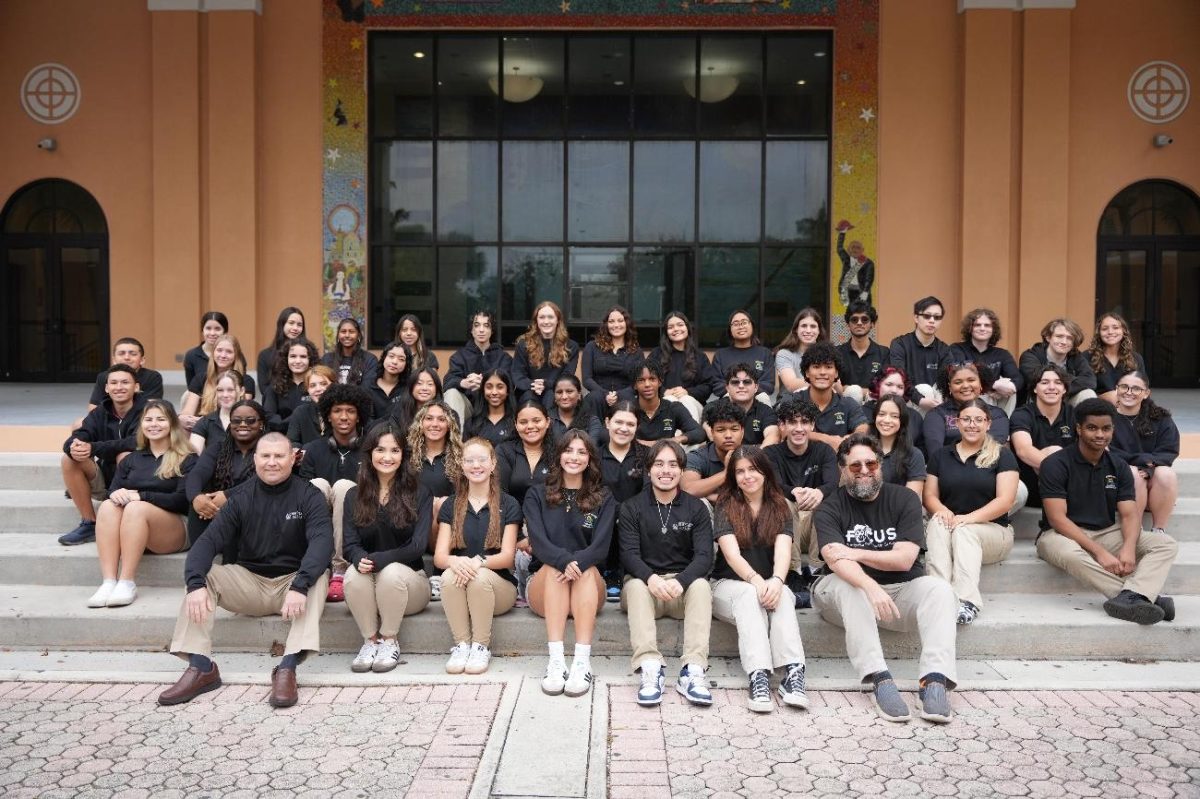If you’ve ever wondered, “Why is there fog in the air”, anytime since the beginning of this school year, you’ve probably grown to ignore it. But unbeknownst to you, it isn’t just a cloudy day or a part of the typical South Florida atmosphere, but instead another direct impact of climate change. With temperatures higher than ever and transitional shifts from summer to fall, Canada’s fire weather has ignited plenty of wildfires that’re traveling thousands of miles to the city of Pembroke Pines.
Canada’s frequent warm-dry conditions have only been amplified as global warming worsens. Many of the causes of these fires are connected to “fire weather”, or events such as lightning strikes, high temperatures, strong winds, and poor air quality that can ignite flames in Canada’s dry environment. However, these natural occurrences are linked directly to human-induced climate change, making these wildfires more difficult to extinguish. With over 150,000 people evacuated, 200 destroyed structures, and 17 deaths, the nation’s relentless fire conditions are spreading over 2,500 miles to our Pines Charter campus.
Senior Mia Olmedo shares her concerns with the effects of these fires, “I started noticing the fog long ago, and it makes me feel like I’m going crazy because I know it hasn’t always been like this.” As an AP Environmental Science student, Mia’s awareness of human-induced climate change is heightened, and she fears for the future. “These types of weather patterns should not become the new normal. It shouldn’t feel like I can’t stand in the sun for over 10 minutes, or have to squint my eyes through the fog. Everything we’re feeling now is just another consequence of our non-eco-friendly habits.”
Ashley Hoadley, a member of Charter’s Cross Country team worries that these changes will wreak havoc on the health of her teammates. The junior expresses, “Last Tuesday, we had a race, but there was a significant amount of smog. The entire team was worried about breathing difficulties, especially for those with asthma. Despite these conditions, we had to continue in the smog, and both my breathing and that of my teammates were affected.” Though the lingering smoke has dissipated since then, adjusting to these new changes should not become the new normal, according to Ashley. “Instead, we should make changes to help the environment and raise awareness about how we can prevent the effects of the flames from reaching Pembroke Pines.”
Despite efforts to control the flames, consequences from wildfires earlier this year have already expanded across North America, threatening the health, activities, and mobility of millions. Unhealthy air quality from these incidents only adds to the evidence suggesting the harmful influence of climate change on our daily lives, and are likely to worsen if action is not taken. With clouds of smog spreading from the north, the sunshine state hopes to recover from its new hazy conditions.








